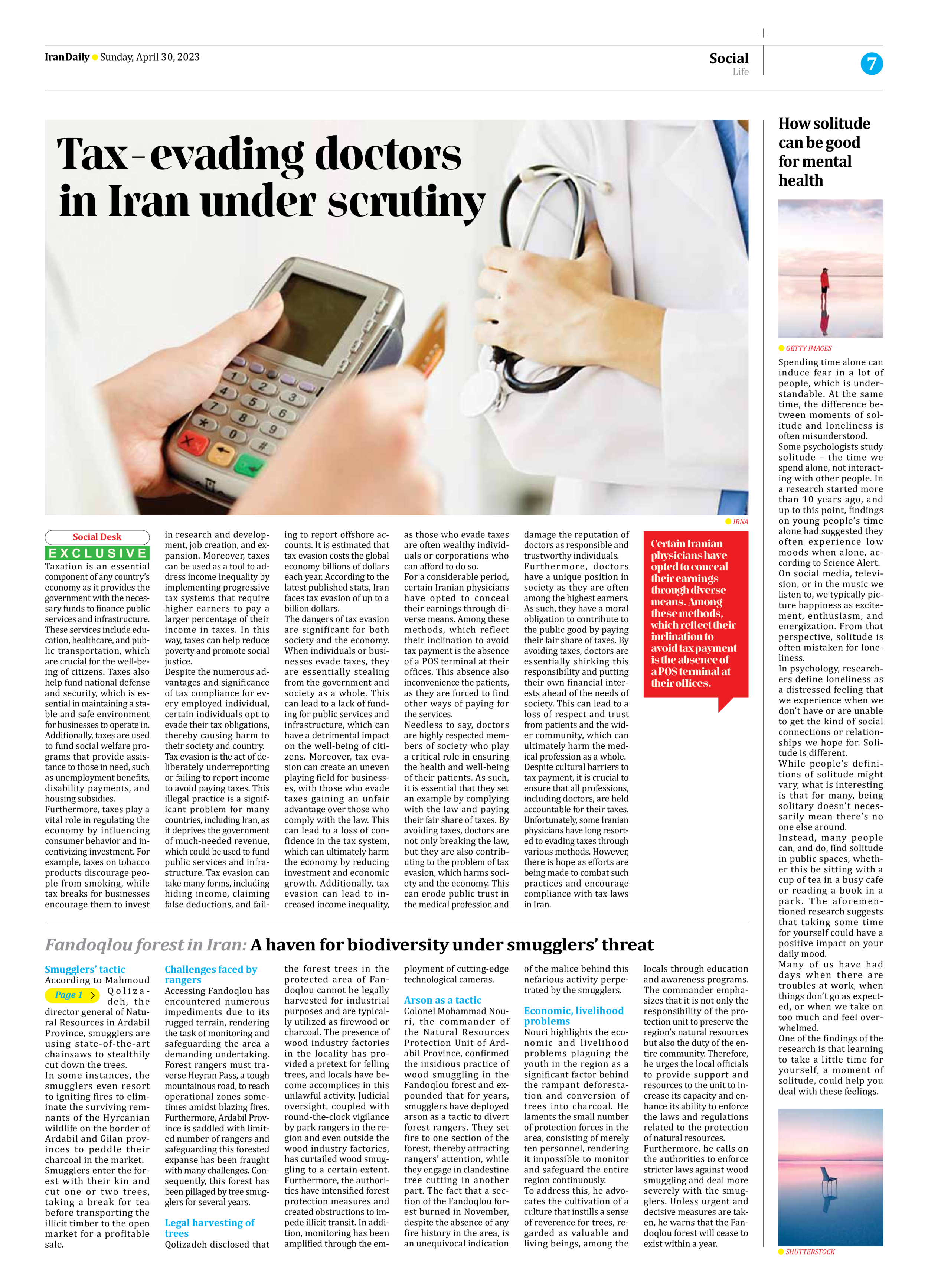
Tax-evading doctors in Iran under scrutiny
Taxation is an essential component of any country’s economy as it provides the government with the necessary funds to finance public services and infrastructure. These services include education, healthcare, and public transportation, which are crucial for the well-being of citizens. Taxes also help fund national defense and security, which is essential in maintaining a stable and safe environment for businesses to operate in. Additionally, taxes are used to fund social welfare programs that provide assistance to those in need, such as unemployment benefits, disability payments, and housing subsidies.
Furthermore, taxes play a vital role in regulating the economy by influencing consumer behavior and incentivizing investment. For example, taxes on tobacco products discourage people from smoking, while tax breaks for businesses encourage them to invest in research and development, job creation, and expansion. Moreover, taxes can be used as a tool to address income inequality by implementing progressive tax systems that require higher earners to pay a larger percentage of their income in taxes. In this way, taxes can help reduce poverty and promote social justice.
Despite the numerous advantages and significance of tax compliance for every employed individual, certain individuals opt to evade their tax obligations, thereby causing harm to their society and country.
Tax evasion is the act of deliberately underreporting or failing to report income to avoid paying taxes. This illegal practice is a significant problem for many countries, including Iran, as it deprives the government of much-needed revenue, which could be used to fund public services and infrastructure. Tax evasion can take many forms, including hiding income, claiming false deductions, and failing to report offshore accounts. It is estimated that tax evasion costs the global economy billions of dollars each year. According to the latest published stats, Iran faces tax evasion of up to a billion dollars.
The dangers of tax evasion are significant for both society and the economy. When individuals or businesses evade taxes, they are essentially stealing from the government and society as a whole. This can lead to a lack of funding for public services and infrastructure, which can have a detrimental impact on the well-being of citizens. Moreover, tax evasion can create an uneven playing field for businesses, with those who evade taxes gaining an unfair advantage over those who comply with the law. This can lead to a loss of confidence in the tax system, which can ultimately harm the economy by reducing investment and economic growth. Additionally, tax evasion can lead to increased income inequality, as those who evade taxes are often wealthy individuals or corporations who can afford to do so.
For a considerable period, certain Iranian physicians have opted to conceal their earnings through diverse means. Among these methods, which reflect their inclination to avoid tax payment is the absence of a POS terminal at their offices. This absence also inconvenience the patients, as they are forced to find other ways of paying for the services.
Needless to say, doctors are highly respected members of society who play a critical role in ensuring the health and well-being of their patients. As such, it is essential that they set an example by complying with the law and paying their fair share of taxes. By avoiding taxes, doctors are not only breaking the law, but they are also contributing to the problem of tax evasion, which harms society and the economy. This can erode public trust in the medical profession and damage the reputation of doctors as responsible and trustworthy individuals.
Furthermore, doctors have a unique position in society as they are often among the highest earners. As such, they have a moral obligation to contribute to the public good by paying their fair share of taxes. By avoiding taxes, doctors are essentially shirking this responsibility and putting their own financial interests ahead of the needs of society. This can lead to a loss of respect and trust from patients and the wider community, which can ultimately harm the medical profession as a whole.
Despite cultural barriers to tax payment, it is crucial to ensure that all professions, including doctors, are held accountable for their taxes. Unfortunately, some Iranian physicians have long resorted to evading taxes through various methods. However, there is hope as efforts are being made to combat such practices and encourage compliance with tax laws in Iran.







